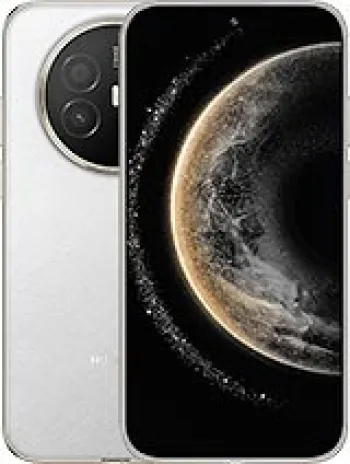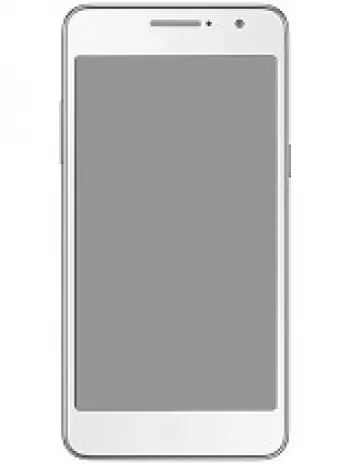
Overview of Huawei Ascend G730
Released in 2014, the Huawei Ascend G730 is a smartphone that blends practical performance with budget-friendly pricing. This device, considered mid-range at its launch, offered several features that positioned it well in the mobile market during its era. While it is now discontinued, the G730 remains a topic of interest among tech enthusiasts due to its specifications and the role it played in Huawei's lineup.
Design and Build
The Huawei Ascend G730 is designed with dimensions of 149.5 x 78 x 9.6 mm, and it weighs 180 grams. These specifications make it a relatively large and hefty device, which is understandable given its 5.5-inch display. The phone features a Dual SIM design, accommodating users who wish to manage two separate numbers or networks simultaneously. The exterior is standard in its aesthetic, available in classic black and white colors, which cater to a wide range of user preferences.
Display
The device is equipped with a 5.5-inch IPS LCD display, offering a resolution of 540 x 960 pixels. With a screen-to-body ratio of approximately 71.5%, the G730 delivers decent screen real estate for the user. While the pixel density of ~200 ppi is not groundbreaking by today's standards, during its release, it was adequate for everyday tasks such as browsing the web and watching videos.
Performance
Under the hood, the Huawei Ascend G730 is powered by a Quad-core 1.3 GHz Cortex-A7 CPU and a Mali-450MP2 GPU. These specifications provide sufficient processing power for most standard applications, though they may struggle with more demanding operations or gaming titles available at the time of release. The device runs on Android 4.2 (Jelly Bean) with Huawei's EMUI 2 interface. This combination provides a user-friendly experience, although certain advanced features available in later Android versions are absent.
Memory and Storage
The internal storage of the G730 is 4GB, which is quite limited. However, it compensates for this with a microSDHC slot that allows users to expand storage capacity as needed. This flexibility is crucial for users who wish to store more applications, pictures, and media files without being constrained by the internal memory. The 1GB RAM supports the device’s performance, though it might not suffice for heavy multitasking.
Cameras
The main camera is a single 5 MP lens with Autofocus and an LED flash, capable of capturing photos in decent lighting conditions. Video recording is possible at 720p at 30fps. The front VGA camera is basic by design, suitable mainly for video calls rather than high-quality selfies.
Battery Life
Fueled by a removable Li-Ion 2300 mAh battery, the Ascend G730 offers modest battery life. It provides up to 200 hours on standby and about 3 hours of talk time. This offers basic daily usage suitability but is below what more modern devices offer.
Connectivity Features
In terms of connectivity, the device supports GSM and HSPA networks, with 3G bands on 900 and 2100 MHz. The maximum speed is HSPA 21.1/5.76 Mbps. Other connectivity options include Wi-Fi 802.11 b/g/n, Bluetooth 4.0, GPS, and FM radio, with microUSB 2.0 for charging and data transfer. However, the device does not feature NFC technology.
Miscellaneous Features
The G730 includes basic sensors such as an accelerometer and a proximity sensor. The presence of a 3.5mm headphone jack and loudspeaker supports audio functionalities. The price at release was approximately 270 EUR, making it an accessible choice for budget-conscious consumers looking for a reliable smartphone.
Conclusion
The Huawei Ascend G730, with its balanced design and decent specifications, served as a practical smartphone suitable for users seeking essential features without unnecessary frills. While it has been surpassed by more recent models with advanced capabilities, its footprint in the mid-tier market during its active years was noteworthy. This legacy stands as a testament to Huawei's ability to offer varied options across different price ranges.
Key Features of Huawei Ascend G730
- Dual SIM capability offering flexibility with SIM cards.
- Large 5.5-inch IPS LCD display providing a spacious viewing experience.
- Quad-core 1.3 GHz Cortex-A7 processor for reliable performance on basic tasks.
- Expandable storage via microSDHC card slot.
- 5 MP main camera with autofocus and LED flash for basic photography needs.
- Integrated FM radio for listening to local broadcasts.
- Standard connectivity options including Wi-Fi, Bluetooth 4.0, and GPS.
- 3.5mm audio jack available for headphone connection.
- Reasonable battery life with a removable 2300 mAh battery.
Disadvantages of Huawei Ascend G730
- Low display resolution of 540 x 960 pixels, resulting in a low pixel density (~200 ppi).
- Limited internal storage of 4GB, which may not be sufficient for apps and media.
- Low RAM of 1GB, which may affect multitasking performance.
- Outdated Android 4.2 (Jelly Bean) OS, which may not support the latest apps and features.
- Front camera is only VGA, offering poor selfie quality.
- Non-removable Li-Ion 2300 mAh battery with limited talk time (up to 3 hours).
- No NFC support, limiting modern connectivity options.
- Discontinued status, which might affect availability of hardware support or replacements.



View Also
More Phones
All Rights Reserved +14268 Phones © Mobilawy 2025

























